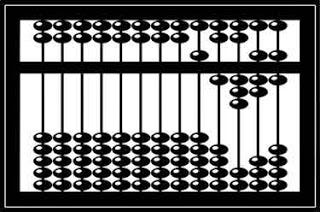On the Presocratics
The abstraction of mathematics and numbers from physical reality is one of the frameworks of modern mathematical studies and many sciences. The pervasiveness and longevity of this view, dating from the Pythagoreans, led at first to cults and early numerology and later to high concepts such as algebra and calculus, and sciences all the way up to quantum theory physics. This understanding of the world has been revolutionary, changing humanity forever and leading to, at times, stages of rapid advancement in technology and information. One fundamental fact has been overlooked in this paradigm shift in the lives of humans. The abstraction of mathematics from physical existence has created a world where the subjective reality that acts as our prism we view the world through is accepted as the only truth and the only legitimate view.
It is an undeniable truism that human beings have been incorporating mathematical principles into their day-to-day lives since the dawn of our species. It is difficult to believe that early man did not know how to count, even were it simply the number of steps or landmarks on a particular path, or the amount of berries to pick for the tribe. Different peoples of the world learned complex counting techniques, many involving hand movements that varied ever so slightly, relative to their origin, whether or not they had systems of higher mathematics as principles (Perfect Figures, Bunny Crumpacker). Yet our view of mathematics- indeed the sciences as a whole- are based upon the assumption that only our Western view is valid and intellectual enough to truly understand mathematics.
Our view of the sciences comes from our reverence for the ideas of the Greek philosophers of the ancient world. The philosophical advances of the Greeks were amazing and set the basic foundation for Western society, the impact of which around the world is difficult to understate. It was the Greeks who were the earliest known people to perform the act of mathematical abstraction, or that have the oldest known record of doing so. Abstraction began to grow in the minds of the Greeks with the debate over whether everything was dependent on the One, expressed as a sphere-like god or as a common element which was the basis of the all, as expressed by Thales (water) and Heraclitus (fire), or if the all was a sum of everything, the Unlimited.
With conflicting views of reality and the physical world, the Greeks began a great debate that was not truly based upon hard material fact, but rather upon interpretations of reality and taking this interpretation to the extreme. The introduction of idealization to the philosophical thought of the Greeks was a natural advance in the conversations the many schools were having over the centuries. Empedocles, a qualitative pluralist, saw the world as in an age of strife, “a land without joy”, and surmised that there had been an age of peace and innocence beforehand, in which “all animals… were tame and gentle to man” (The Presocratics, Wheelwright, 140). What Empedocles was advancing was a theory that stated that because the world did not live up to the idealization he wished it to- that of peace and harmony for mankind, with all the earth subservient- it simply meant that the ideal had passed, not that the ideal was a fantasy. When faced with difficulty and the hard truths of physical reality, which did not conform to the ideal, the ideal was abstracted and thought of as how things should be.
As the Greeks began to ask more and more questions about their surroundings, their lives and reality itself, the questions themselves became increasingly abstract, culminating in the number cult of the Pythagoreans. The Pythagoreans did not leave an intensive record, due to their secrecy, but what they did leave shows an insular society removed from reality in many ways. The Pythagoreans had an extensive list of rules they lived by, not eating beans or even crossing a field of them, not taking public roads and not sticking iron in footprints. These rules seem more cultish than practical, and their worship of numbers as divine and having spiritual connotation in the abstract adds to this picture. The Pythagoreans even took their ideas to the extreme of supposing that though there eyes saw only nine heavenly bodies, their worship of ten meant there had to be ten bodies in the sky- so they made one up. This level of abstraction from reality was an extreme that later mathematic and scientific philosophy has pulled back from, but the idea of the removal from physical existence of numbers and their application survives to this day.
The ripples of the move from the study of integrated reality, as seen by the earlier presocratics in their study of the all, to the study of abstraction has had an immense effect on our view of the world then and now. On the one hand, the abstraction of the Greeks had the benefit of producing a more accurate picture of the laws of nature as seen through the lens of abstract mathematics- the theorems that formed our understanding of geometry and physics. On the other hand, the Greeks, by abstracting the idea of knowledge and number from that which is known and counted, left us with a problem which is twofold. First, our Western outlook has constrained us to see other forms of mathematics and science which have evolved differently as lesser to our forms. We are blinded to other advancements because our advancements leave us with a feeling of superiority and inability to see different ways built on separate axioms. Second, an understanding of nature based upon abstract concepts is an understanding which shall always be muted by its removal from what is actual and real.
The influence of the Greek thinkers on our civilization has been immense, but a bit deceptive. Today, Western society sees the world as an abstraction itself, a resource to be exploited with use of the innovations our substantial advances in mathematics and science. These innovations would not have been possible without the groundwork laid by the Greeks, it is true. But does our reliance on that foundation limit us in our greater global and universal understanding? Are we limited by the advances we have made? Have they skewed our view of reality? The answers to these questions are not easy, but the underlying truths of the questions themselves can be summed up easily. Though our knowledge has given us many gifts and allowed us a look at the world previously unseen by mankind, we still should not discount other views, nor should we look down on the ideas of those who came to different conclusions than we.





